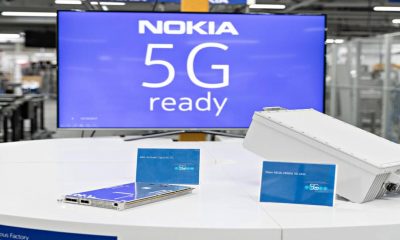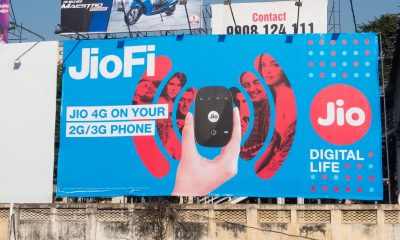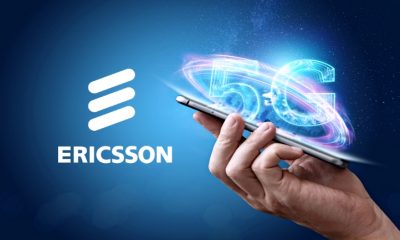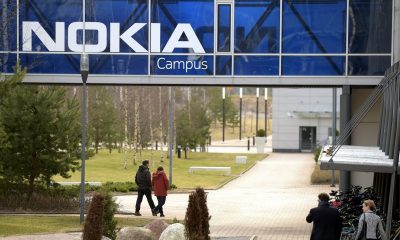Mobile Services
Huawei surpasses Ericsson to become top equipment vendor in world
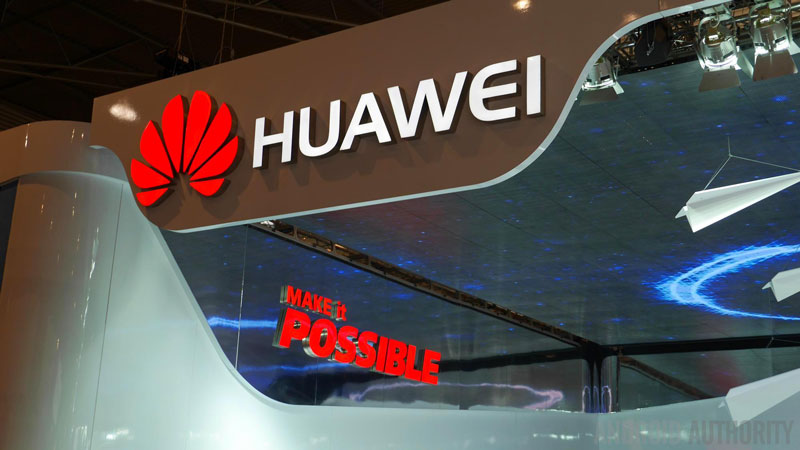
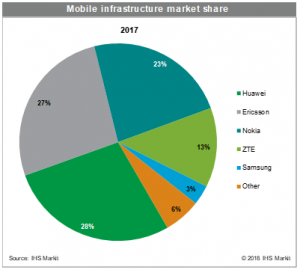 NEW DELHI: Chinese telecommunications equipment, Huawei has been named as the biggest telecom equipment maker of 2017, beating Ericsson, Nokia, ZTE and Samsung, according to IHS Markit Mobile Infrastructure Market Tracker.
NEW DELHI: Chinese telecommunications equipment, Huawei has been named as the biggest telecom equipment maker of 2017, beating Ericsson, Nokia, ZTE and Samsung, according to IHS Markit Mobile Infrastructure Market Tracker.
Huawei’s mobile infrastructure share increased from 25 percent to 28 percent in 2017.
On the other hand, Ericsson’s global mobile infrastructure equipment share dropped from 28 percent in 2016 to 27 percent in 2017.
Interestingly, Nokia’s mobile infrastructure share fell from 24% to 23% year-on-year.
In the meantime, ZTE currently holds a 13% share of the global mobile infrastructure market and Samsung has 3% share of the mobile infrastructure market.
Beside this, Shenzhen-based Huawei set to become the world’s biggest 5G market leader as company has signed 25 Memorandums of Understanding (MoUs) with telecoms network operators to trial its 5G-ready equipment, a Reuters review of company reports and announcements found.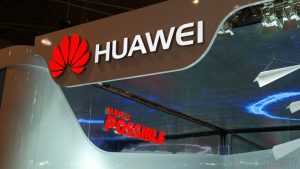
These MoUs – pre-cursors to potential commercial contracts – include agreements with Britain’s BT, Bell Canada (BCE), France’s Orange, Germany’s Deutsche Telekom and global player Vodafone.
Huawei lags behind Sweden’s Ericsson, with 38 MoUs, and Finland’s Nokia, with 31, according to the data, which does not include deals that have not been made public.
Still, Huawei’s existing partnerships with telecoms network operators could give it an extra edge; as of 2016, Huawei said it had supplied more than half of the 537 4G networks globally and 59 of the 90 4.5G networks – an intermediate step before 5G.
By 2025, 1.2 billion people worldwide are set to have access to 5G networks – a third of them in China, according to the GSMA, a global trade group of nearly 800 mobile network operators.
Huawei is triple the size of either Nokia and Ericsson in terms of its annual revenue, which totalled about US$92 billion last year, half of it from China.
The Chinese firm sold 32 per cent of global mobile radio access gear – antennas and base stations – in the past quarter, against Ericsson’s 30 per cent and Nokia’s 25 per cent, according to market research firm Dell‘Oro.
Huawei’s 5G MoUs include non-binding agreements with big telecoms network operators in South Korea, Japan and Australia, Italy, Turkey and Saudi Arabia, on top of Britain, Germany, France and Canada.
IHS Markit Mobile Infrastructure Market Tracker, which includes data for quarter ended December 31, 2017. The report tracks 2G, 3G, LTE and 5G equipment and software.
Globally, the mobile infrastructure market — including all types of radio access network (RAN), switching and core equipment — grew 15 percent sequentially in the fourth quarter of 2017 (Q4 2017), driven by previous year-end loaded projects in various spots, including China and India, and the completion of other expansion projects in North America. However, the Q4 2017 market was down 10 percent on a year-over-year basis and down 14 percent for the full-year 2017.
“The worldwide mobile infrastructure market gained some steam in the fourth quarter, but it was not enough to bring the whole year back into positive territory,” said Stéphane Téral, executive director, mobile infrastructure and carrier economics research at IHS Markit.
“Despite relative stability in North America and a slight pickup in Japan, full-year 2017 mobile infrastructure revenue declined in all regions, and even more so in China,” Téral said. “All of this confirms we are now in the second year of the post-LTE peak era.”
Mobile infrastructure market highlights
For the full-year 2017, global 2G/3G/LTE 2017 macro hardware revenue totaled $37.2 billion, declining 14 percent from $43.3 billion in 2016
China remains the largest mobile infrastructure market with around 680,000 enhanced NodeBs (eNBs) shipped last year, down from 1 million in 2016
When excluding 5G from the forecast, the global 2G/3G/LTE mobile infrastructure hardware market is projected to slowly decline to $13 billion by 2022 — a five-year (2018–2022) compound annual growth rate (CAGR) of -18.4 percent
When including 5G in the forecast, 2G/3G/4G/5G hardware revenue is anticipated to increase to $25 billion by 2022, with a five-year CAGR of -7.8 percent
5G hardware revenue is expected to reach $11 billion in 2022, starting from a very low base of early adopters in the US in the second half of 2018, followed in 2019 by South Korea and China’s massive trial that will generate revenue for vendors
5g
Airtel announces its largest ever 5G roll-out in 125 cities
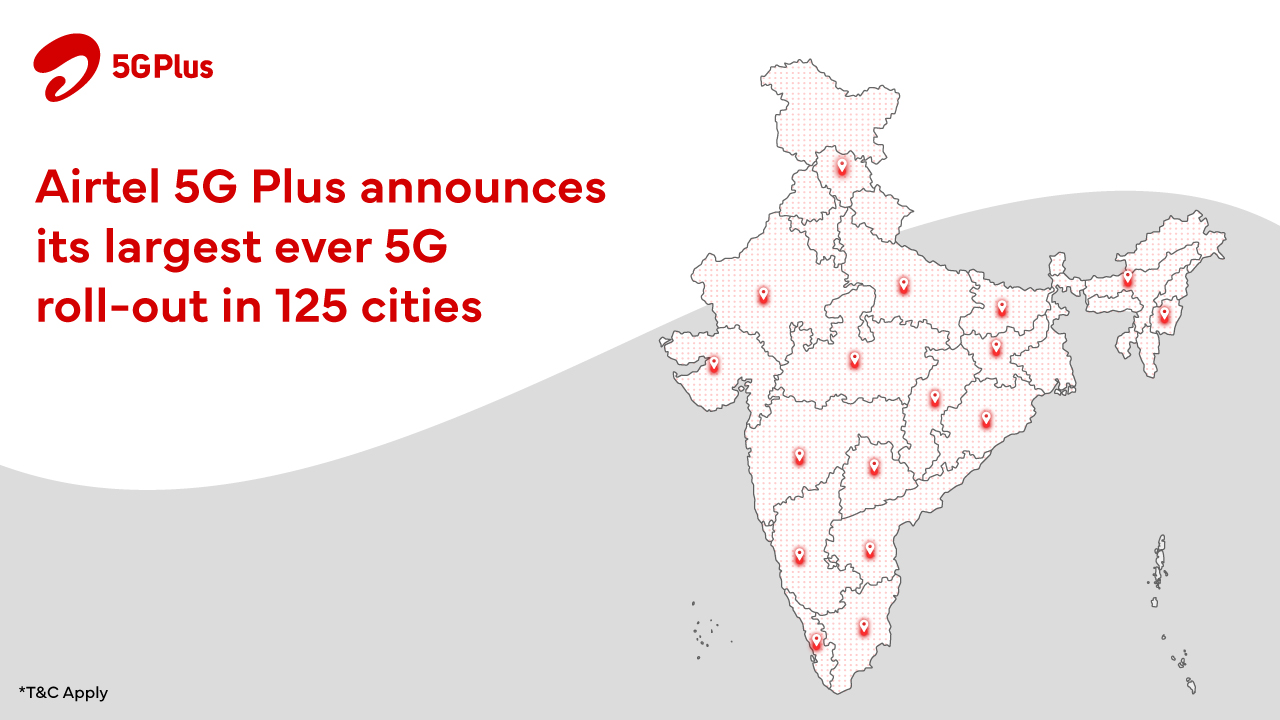
NEW DELHI: Bharti Airtel, India’s telecommunications services provider, today announced the launch of its ultra-fast 5G services in 125 cities. Airtel 5G Plus service is now available to customers in over 265 cities in the country.
Airtel 5G Plus has three compelling advantages for customers. First, it runs on a technology that has the widest acceptance in the world with the most developed ecosystem. This ensures that all 5G smartphones in India seamlessly work on the Airtel network. Second, the company promises to deliver the best experience – between 20 to 30 times higher speeds than today coupled with brilliant voice experience and super-fast call connect. Finally, Airtel 5G Plus network will also be kinder to the environment with its special power reduction solution. Powered by the reliable Airtel network infrastructure, Airtel 5G Plus will provide superfast access to High-Definition video streaming, gaming, multiple chatting, instant uploading of photos et all.
Commenting on the launch, Randeep Sekhon, CTO, Bharti Airtel said, “5G has revolutionized the world of internet, ushering new era of connectivity and communications that will prove to be a game-changer for the country. At Airtel, we remain committed to delivering the highest quality of network and service to our customers as we roll-out 125 more cities today. Airtel was the first in the country to offer 5G services in October 2022, and today’s mega launch is our promise to connect every Airtel customer in the country with ultra-fast Airtel 5G Plus. Our 5G rollout is on track to cover all towns and key rural areas by March 2024.”
Airtel 5G Plus service availability will continue to rapidly expand – including service in all towns and villages in the country soon – as the company is working towards offering nationwide coverage. Airtel is now offering its 5G services in every major city from the upper northern city of Jammu to the southern tip of Kanyakumari.
In the last one year, Airtel has demonstrated the power of 5G with a host of powerful use cases that will change the way customers lead their lives and do business. From India’s first live 5G network in Hyderabad to India’s first private 5G network at the BOSCH facility in Bengaluru to partnering with Mahindra & Mahindra to make its Chakan manufacturing facility, India’s first 5G enabled auto manufacturing unit, Airtel has been at the forefront of 5G innovation.
5g
Apple rolls out beta programme for iPhones to enable 5G services
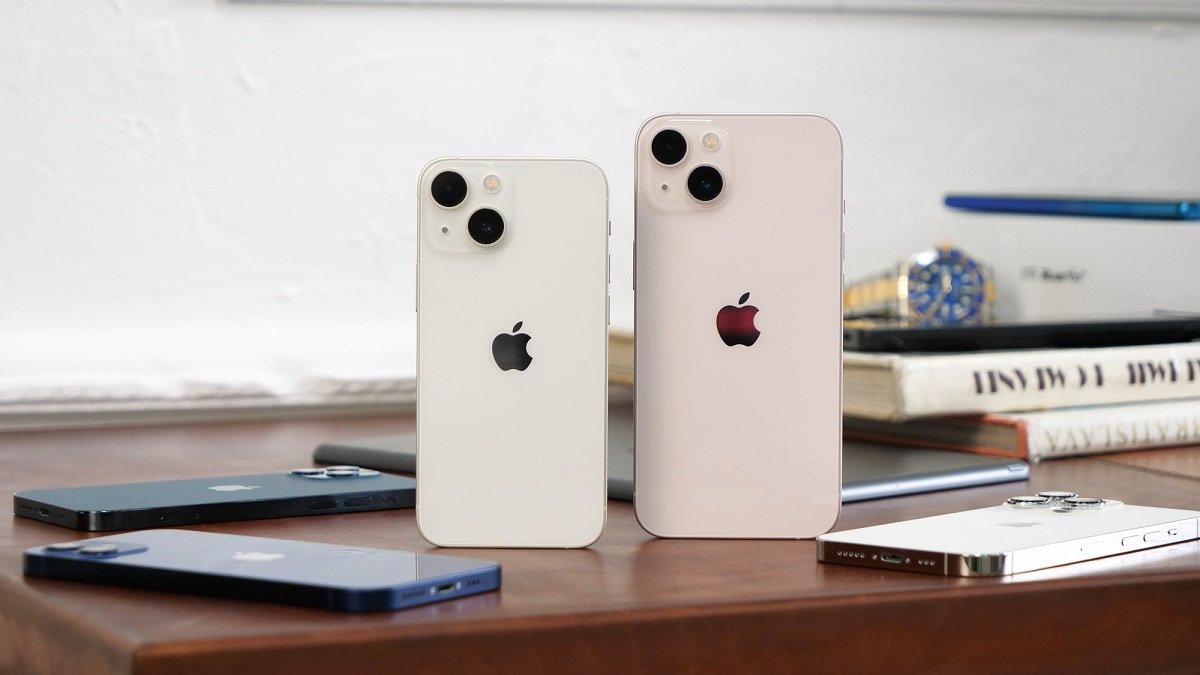
NEW DELHI: Apple Inc has rolled out a beta programme to enable 5G on Apple devices as the upgrade lets users try out pre-release software.
This software upgrade enables 5G access on Apple devices, as and when service providers Jio, Airtel and Vodafone enable 5G network access, sources said.
Apple Users have to enrol for the Beta Programme on the website, install a profile and download the software.
Jio users using iPhone 12 and above, in cities where JioTrue5G has been rolled out, will be invited to the Jio Welcome Offer. Jio Welcome Offer provides unlimited 5G data at up to 1 Gbps speed to users at no additional cost. However, there is a condition that prepaid users must be on active Rs 239 and above plan. All Postpaid users are eligible for this trial.
Airtel is not providing any special 5G offer like Jio to their users. In the cities/areas in which the Airtel 5G network has been launched, users can trial 5G services as a part of their existing plan, once they have updated the latest Apple Beta software.
While an email sent to Apple did not solicit an immediate response, the firm had last month stated: “We are working with our carrier partners in India to bring the best 5G experience to iPhone users as soon as network validation and testing for quality and performance is completed. 5G will be enabled via a software update and will start rolling out to iPhone users in December”.
Airtel and Jio customers on iPhone 14, iPhone 13, iPhone 12 and iPhone SE (3rd generation) models can experience 5G as part of Apple’s iOS 16 Beta Software Program. The Apple Beta Software Program is open to anyone with a valid Apple ID who accepts the Apple Beta Software Program Agreement during the sign-up process.
If a user has an iCloud account, that is an Apple ID, it is recommended they use that. If they do not have an iCloud account or any other Apple ID, they can create one.
Customers who want to try the beta software should back up their iPhones before installing the beta software. It is recommended to install the beta software only on non-production devices that are not business-critical. Users can also provide feedback to Apple on quality and usability, which helps Apple identify issues, fix them, and make Apple software even better.
The iOS beta comes with the built-in Feedback Assistant app, which can be opened from the Home screen on the iPhone or iPad or from the Dock on the Mac.
Source: Press Trust of India
5g
Nokia wins multi-year deal with Reliance Jio India to build one of the largest 5G networks in the world
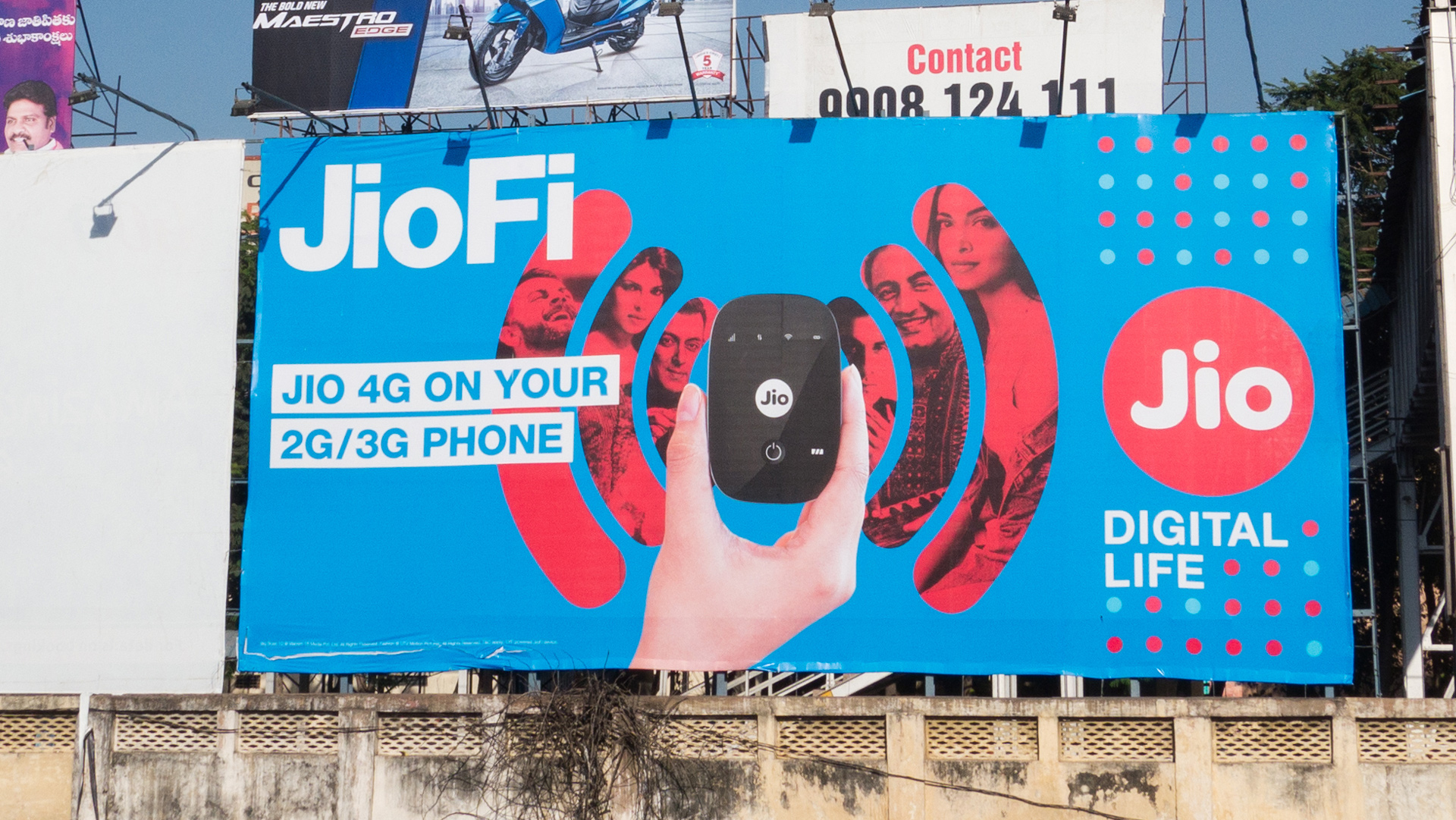
NEW DELHI: Nokia has announced that it has been selected as a major supplier by Reliance Jio to supply 5G Radio Access Network (RAN) equipment from its comprehensive AirScale portfolio countrywide in a multi-year deal. Reliance Jio is India’s number one mobile operator and has one of the largest RAN footprints in the world.
Under the contract, Nokia will supply equipment from its AirScale portfolio, including base stations, high-capacity 5G Massive MIMO antennas, and Remote Radio Heads (RRH) to support different spectrum bands, and self-organizing network software. Reliance Jio plans to deploy a 5G standalone network which will interwork with its 4G network. The network will enable Reliance Jio to deliver advanced 5G services such as massive machine-to-machine communications, network slicing, and ultra-low-latency.
Akash Ambani, Chairman Reliance Jio, commented: “We are pleased to be working with Nokia for our 5G SA deployment in India. Jio is committed to continuously investing in the latest network technologies to enhance the experience of all of its customers. We are confident that our partnership with Nokia will deliver one of the most advanced 5G networks globally.”
Pekka Lundmark, President and CEO at Nokia stated: “This is a significant win for Nokia in an important market and a new customer with one of the largest RAN footprints in the world. This ambitious project will introduce millions of people across India to premium 5G services, enabled by our industry-leading AirScale portfolio. We are proud that Reliance Jio has placed its trust in our technology and we look forward to a long and productive partnership with them.”
Nokia has a long-standing presence in India. This new deal will mean that Nokia is now supplying India’s three largest mobile operators.



